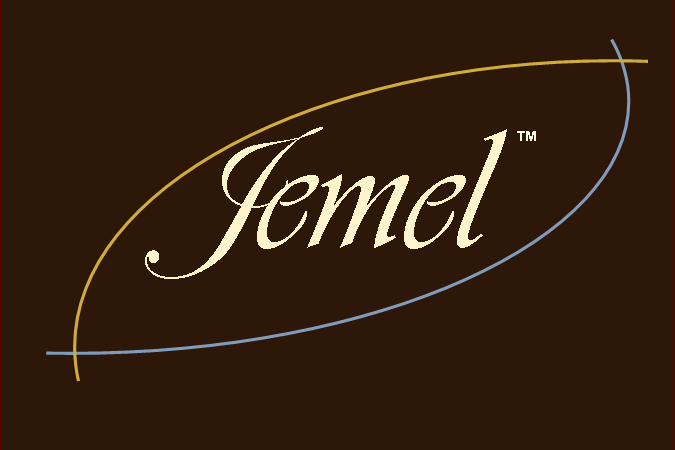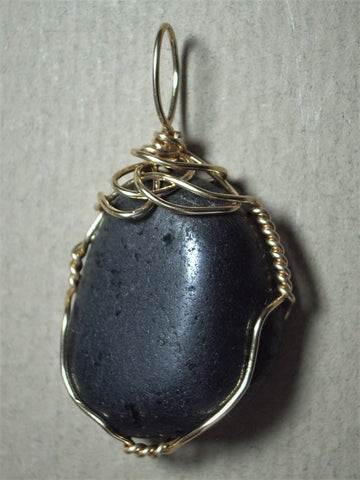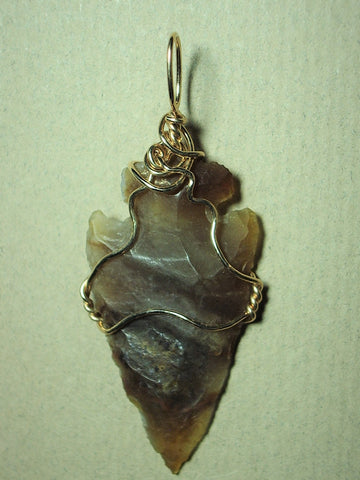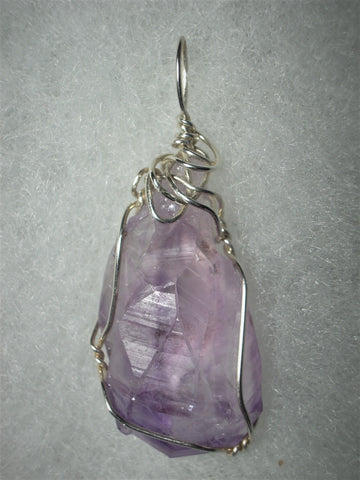Magnetite Stone Pendant Wire Wrapped 14/20 Gold Filled
Magnetite Pendant Wire Wrapped in 14/20 Gold Filled Round Wire
An attractive dark charcoal gray metallic stone with an antique, medieval like finely pitted surface appearance with a few small dark glassy patches of silicate minerals. Versatile, presented reasonably well with most colors of clothing; best worn with earth tone colors, also a good conversation piece; overall, mostly naturalistic to an artistic stone.
Description: Metallic dark charcoal gray with some fine pitting and patches of glassy silicate minerals; half circle shaped stone wrapped in 22 gauge gold filled wire.
Stone Size: Medium (7/8” x 3/4” x 3/8”).
Pattern: Dominant dark charcoal gray metallic with some very fine pitting and a few small patchy glassy areas.
Contour: Smooth, sloped, flat face.
Unique Features: Magnetic (attracted to a magnet); dark metallic charcoal color and some fine pitting (typical for this stone type); patchy glassy areas.
Polish: High, quite brilliant, metallic.
Edges: Smooth, low to high dome.
Treatment: None; natural stone, smoothed and polished only.
Comment: To help clear some confusion and distinguish between magnetite and hematite: magnetite is generally formed from different geologic processes than hematite, but both magnetite and hematite usually contain some amount of the other, so some characteristics can cross over. Typically, pure hematite is not attracted to a magnet, is lighter in color, bright silver metallic, and of fine structure and texture (few to no pits, abraded surfaces, etc.), while magnetite is quite strongly attracted to a magnet and can also be lodestone (a weak magnet itself), is darker in color, charcoal gray metallic, and often of a more coarse structure and texture (often contains many fine pits that may appear as finely abraded surfaces). Because the two minerals are often mixed to a small extent, hematite can often exhibit weak attraction to a magnet, and magnetite can be somewhat lighter in color and of finer texture than usual. Buyers should be aware, however, that another material, once called hematine, is often sold as hematite, magnetic hematite, rainbow hematite (when colored), and sometimes as magnetite. This material exhibits the best qualities of both magnetite and hematite, but it is not natural at all. It is a man-made material that is neither magnetite nor hematite, but of completely different composition, and is actually a material used to make magnets. Therefore it is strongly magnetic and will act as a magnet, attracting magnetic materials to itself. This is how you can tell that it is not natural. Even though small magnetite pieces can be lodestones (magnets), their attraction for other magnetic materials is still quite weak. Limited to iron filings, magnetite sand, and sometimes pins or paper clips; the synthetic material, however, will pick up large objects (screws, bolts, nails, etc.). A unique, handmade, genuine semi-precious stone pendant, this piece is posted individually, not merely a representative item - what you see is what you get.
We Also Recommend












